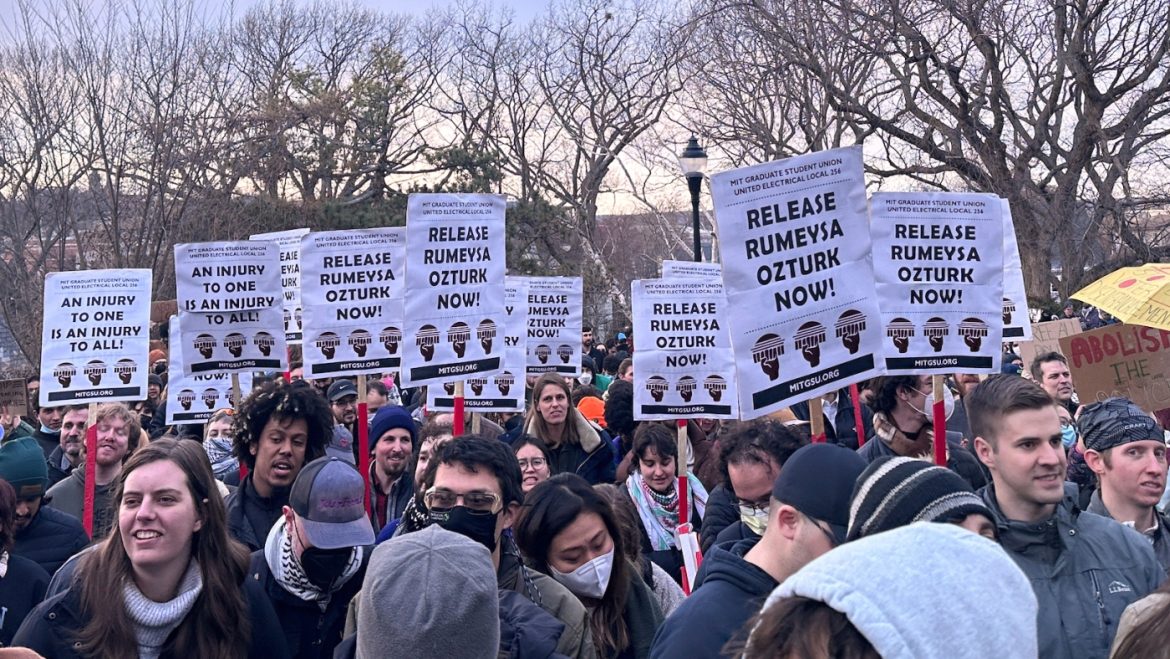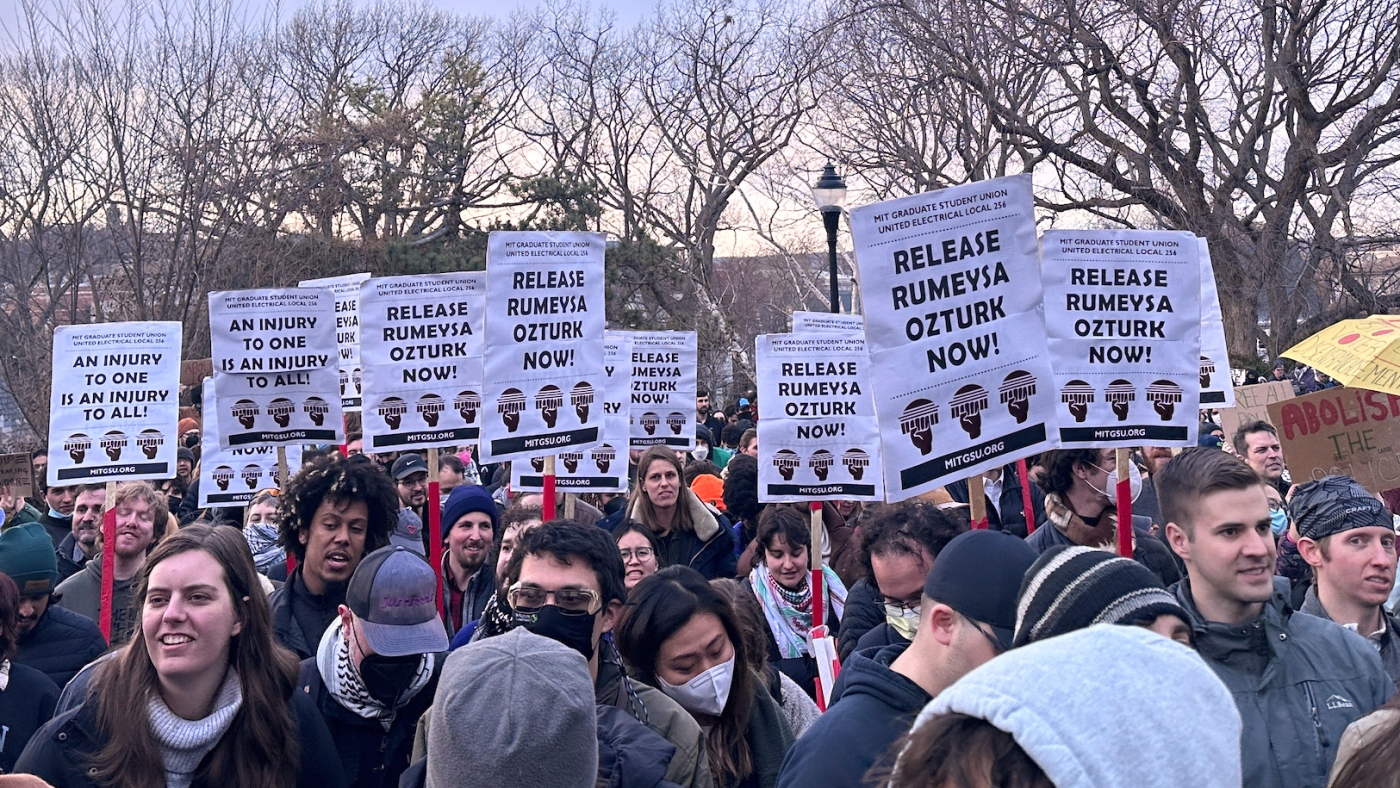The Case of Rümeysa Öztürk: A Complex Web of Immigration and Free Speech
The story of Rümeysa Öztürk, a Tufts University doctoral student, is a multifaceted narrative that intertwines immigration policies, free speech, and the complexities of the legal system. Öztürk’s detention and subsequent release by federal judges highlight the intricacies and controversies surrounding immigration enforcement under the Trump administration.
The Arrest and Detention
Rümeysa Öztürk, a Turkish national pursuing a Ph.D. in child development at Tufts University, was abruptly detained by federal immigration officers in March 2025. The arrest, which involved six masked agents from the U.S. Department of Homeland Security (DHS), occurred near her home in Somerville, Massachusetts. Öztürk was then transported through a series of U.S. Immigration and Customs Enforcement (ICE) detention centers, eventually ending up in Louisiana.
The circumstances surrounding her arrest were particularly contentious. Öztürk’s detention was reportedly linked to an op-ed she co-authored in The Tufts Daily, a student newspaper. The op-ed, which expressed pro-Palestinian views, sparked a series of events that led to the revocation of her F-1 student visa by Secretary of State Marco Rubio. This move set the stage for her deportation, marking a significant escalation in the Trump administration’s efforts to enforce strict immigration policies.
Legal Battles and Judicial Interventions
Öztürk’s case quickly became a focal point for legal battles and judicial interventions. Initially, a federal judge in Vermont ordered her immediate release, citing concerns over her detention’s potential chilling effect on free speech. This ruling was a significant setback for the Trump administration, which had been pushing for her deportation. However, the legal journey was far from over.
A federal appeals court in New York later ordered the Trump administration to transfer Öztürk back to Vermont from Louisiana. This decision came after a series of hearings and legal arguments, with Öztürk’s lawyers asserting that her detention violated her constitutional rights, including free speech and due process. The appeals court’s ruling underscored the legal complexities and the ongoing debate over the balance between immigration enforcement and individual rights.
The Role of Free Speech
One of the most compelling aspects of Öztürk’s case is the intersection of immigration policy and free speech. Judge William K. Sessions III, who oversaw the case, highlighted that Öztürk’s detention could have a chilling effect on the speech of millions of noncitizens. This perspective adds a layer of constitutional significance to the case, raising questions about the limits of government power in enforcing immigration laws and the protection of free speech rights for noncitizens.
Öztürk’s detention was seen by many as a retaliatory measure for her political expression, which is a grave concern in a democratic society. The op-ed she co-authored was a form of political advocacy, and her subsequent arrest raised alarms about the potential for censorship and suppression of dissenting voices. The legal battles surrounding her case underscored the importance of protecting free speech, even for those who are not U.S. citizens.
The Impact on Immigration Policy
The case of Rümeysa Öztürk also sheds light on the broader implications of immigration policy under the Trump administration. The administration’s aggressive stance on immigration, characterized by strict enforcement and deportation efforts, has been met with significant legal and public scrutiny. Öztürk’s case is just one example of the complex and often contentious nature of these policies.
The legal battles and judicial interventions in Öztürk’s case highlight the challenges faced by noncitizens in the U.S. immigration system. The revocation of her student visa and subsequent detention raised questions about the fairness and transparency of immigration enforcement. The case also underscored the need for a balanced approach that respects individual rights while enforcing immigration laws.
Conclusion: A Call for Balanced Immigration Policy
The story of Rümeysa Öztürk is a poignant reminder of the complexities and controversies surrounding immigration policy and free speech. Her detention and subsequent release by federal judges underscore the need for a balanced approach that respects individual rights while enforcing immigration laws. The case highlights the importance of protecting free speech, even for noncitizens, and the potential chilling effect of retaliatory measures. As the legal battles continue, Öztürk’s case serves as a powerful example of the ongoing debate over immigration policy and the protection of constitutional rights.


